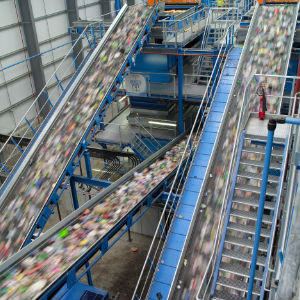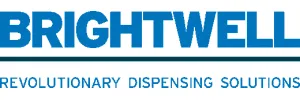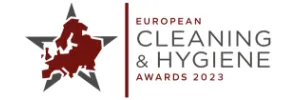News & Insights
Read the latest news from us and our clients across the globe

Posted on 17 March 2015 by adtrak.admin
Driving sustainability, innovation and profitability across major estates
Facilities managers are ideally placed to drive innovation and profitability across major estates. Identifying and exploiting the hidden value in surplus resources can lead to significant savings and unique promotional opportunities.
Steve Eminton, editor of letsrecycle.com, organisers of the Awards for Excellence in Recycling and Waste Management, discusses some best practice examples in which facilities managers are the catalysts of sustainability.

Demonstrating to investors, customers and employees that your company is ‘doing things right’ has become a must-have rather than nice-to-have. Rather than being a burden, corporate responsibility can turn risk into positive gain, and reassure stakeholders that there is commitment from the boardroom.
Within corporate responsibility processes, sustainable resource management offers both quick wins and long-term gains: reducing costs, bringing environmental benefits and improving staff and stakeholder perceptions of an organisation.
A modern approach
Technology offers some time-saving opportunities for those wanting to address waste and improve resource efficiency.
The Savoy Hotel in London, for example, is working with waste contractor Brewsters to ensure that waste is recycled responsibly. Using telemetry to provide detailed breakdowns, weights and measures, The Savoy is now able to monitor its resource use and calculate its carbon footprint. As well as the typical waste streams of paper, glass and plastics, the hotel has introduced in-house schemes for recycling the more unusual items like candles, corks, spectacles and stamps. Even old computer and kitchen equipment is donated to local community schemes and overseas charities.
As part of its carbon reduction strategy, The Savoy is also working with ReFood UK to recycle food waste into renewable energy, generating enough power to light some 20 per cent of guest rooms.
Online exchange
For larger estates such as universities and hospitals, an online re-use system called warp-it is revolutionising the way resources are consumed and reused. By providing a simple online exchange platform for unwanted furniture, warp-it users have avoided 400,000 tonnes of furniture becoming waste, saving 1,192,471 tonnes CO2 equivalent and donated £236,545 to charity.
“If Northumberland can achieve over £60,000 of savings in such a short period of time, other Councils with traditionally higher spend could achieve much more,” said Lee Jackson, Commercial and Procurement Services Manager, Northumberland County Council.
warp-it members can find new owners for their surplus kit, reducing waste disposal and purchasing costs. Some are using the website for building clearances, finding new owners even before the clearance starts, maximising re-use and reducing delays. Valuable storage space is also being recovered by giving away un-needed furniture, either within or between organisations.
From the ground up
Even old carpet is finding a sustainable outlet through Carpet Recycling UK, a not-for-profit membership association working to increase the recycling of carpet waste.
With a steadily increasing number of specialised outlets for recycled carpets, Carpet Recycling UK helps find the right market for your unwanted floor coverings. Carpet tiles, synthetic carpets and wool-rich carpets can be recycled into all manner of new products, including washing machine parts, wheel trims, sound insulation, underlay and soil enhancers.
According to Carpet Recycling UK, diversion of carpet from landfill continues its upward trend, with a record-breaking 113,000 tonnes reused, recycled or recovered for energy in 2014.
Engaging the workforce
Best practice in facilities management can depend upon the engagement of hundreds of people working across large estates. Westfield Stratford City in partnership with WasteSolve has delivered a comprehensive communications and engagement campaign to the people working in each of its 1,000 stores, called The Green Academy.
With tailored messaging about recycling, and regular reinforcement to encourage ownership and creative solutions, Westfield’s 8,000 staff are now diverting more than 80 per cent waste from landfill, cutting costs by 30 per cent and donating funds to charity.
98 per cent of tenants are now participating in the recycling scheme, with all 82 food outlets sending their food waste to anaerobic digestion.
Westfield trained and incentivised staff to spot opportunities that might not be obvious from the board room. It’s not unusual for the best ideas to come from the shop floor, where people are working day-in day-out and have a thorough understanding of the resources they use.
A leadership role
Facilities managers are encouraged to make the most of the human resources available at clients’ sites: a consistent approach to communications and engagement can deliver unexpected results, with both environmental and social benefit.
By being aware of the many and varied opportunities to re-use or recycle unwanted resources, FM contractors are adding significant value to the services they provide. Many organisations simply aren’t aware of the options – or the business case – for diverting waste from landfill, so Facilities Managers are in the ideal place to recommend cost-saving initiatives that also contribute to corporate responsibility targets.
The diversity of sites served by the FM sector also opens up opportunities to create resource partnerships. One company’s waste is often another company’s resource, so making the link can add unexpected value to two or more clients’ operations and improve performance all round.
Giving credibility to claims
Some of Britain’s most progressive sites are achieving high recycling rates and delivering charitable benefits within their communities. Sharing good practice in this area is vital to allow others to learn and follow, and enable stakeholders to really understand the vision and priorities of an organisation.
FM experts have both great responsibility and opportunity from sustainable resource management. These days, reputations are built on being forward-thinking, profit-minded and environmentally and socially responsible. Social media and other instant communications channels are holding companies to account; but they also provide an unprecedented opportunity for self-promotion.
Third party recognition is particularly valuable as it cuts through greenwash and demonstrates that activities have been independently assessed and that claims withstand scrutiny. Certification schemes such as ISO14001 or the more recent social responsibility standard ISO26000 provide effective ways to ensure credibility and drive continual improvement.
Rewarding commitment
Winning an award is another very effective approach to having accomplishments independently verified and promoting outstanding successes. From the tiny triumphs to nationwide feats of sustainability in action, achieving an award is an exciting way to receive recognition for green achievements.
The awards ceremony itself offers an ideal environment for direct promotion through corporate hospitality. Inviting investors to a glittering event that gathers the ‘best of the best’ conveys a positive and affirmative message about your credentials.
All of the organisations and companies referred to in this article, are examples of previous winners of the Awards for Excellence in Recycling and Waste Management.
Entries to this year’s Awards for Excellence close on 26th March, with sustainability champions in the FM sector perfectly positioned to have their achievements recognised. Winning an award will show that you take corporate responsibility seriously and communicating your success will attract the right sort of attention. Why not give yourself a chance and enter today?
http://www.awardsforexcellence.co.uk/
Published in iFM – March 2015
Experts in Public Relations Services & Communications Management
Our ServicesGenuine industry specialists in cleaning and hygiene, environmental and recycling, and facilities management
Our Sectors












